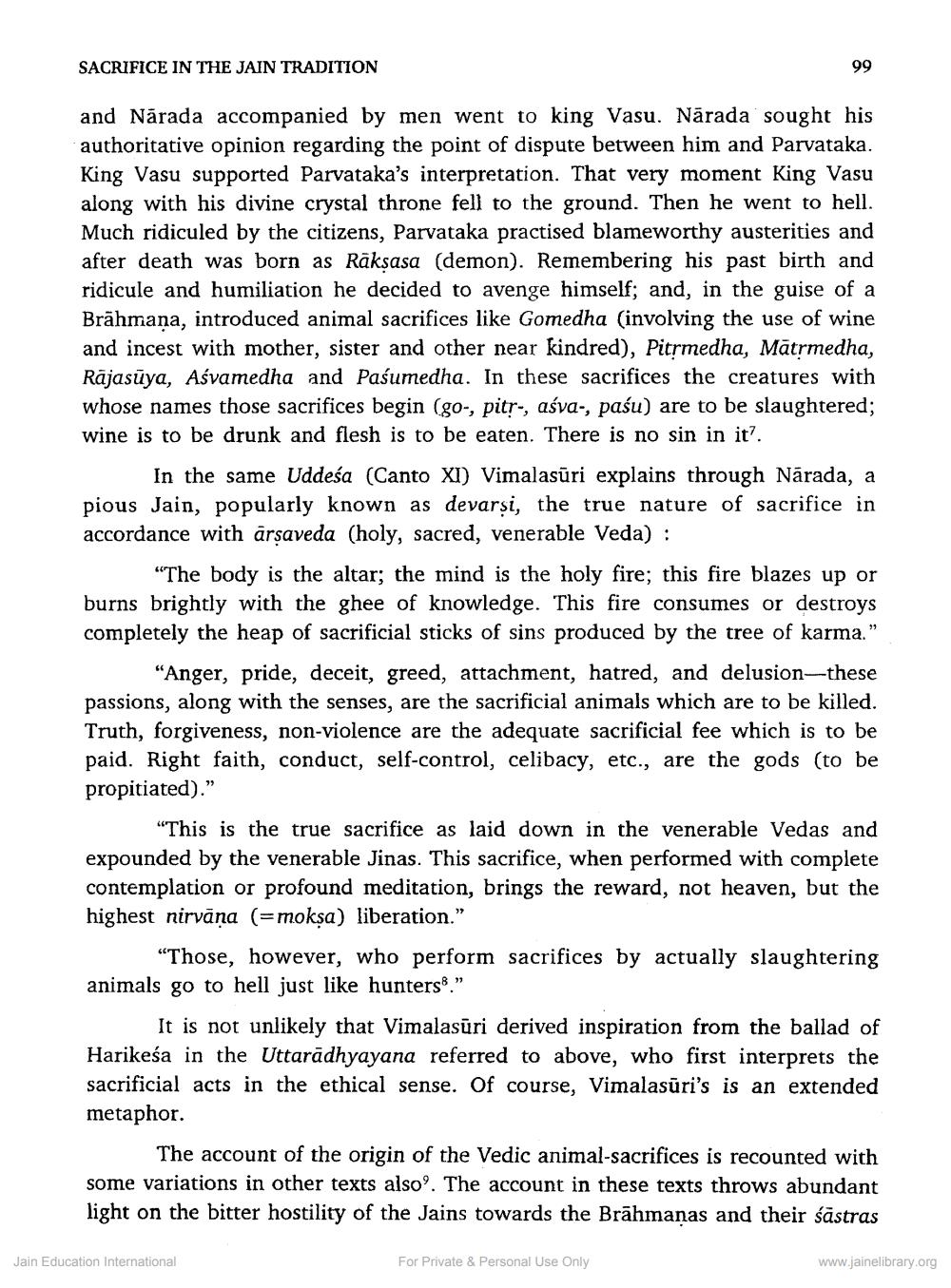________________ SACRIFICE IN THE JAIN TRADITION and Narada accompanied by men went to king Vasu. Narada sought his authoritative opinion regarding the point of dispute between him and Parvataka. King Vasu supported Parvataka's interpretation. That very moment King Vasu along with his divine crystal throne fell to the ground. Then he went to hell. Much ridiculed by the citizens, Parvataka practised blameworthy austerities and after death was born as Raksasa (demon). Remembering his past birth and ridicule and humiliation he decided to avenge himself; and, in the guise of a Brahmana, introduced animal sacrifices like Gomedha (involving the use of wine and incest with mother, sister and other near kindred), Pitrmedha, Matrmedha, Rajasuya, Asvamedha and Pasumedha. In these sacrifices the creatures with whose names those sacrifices begin (go-, pits-, asva-, pasu) are to be slaughtered; wine is to be drunk and flesh is to be eaten. There is no sin in it?. In the same Uddesa (Canto XI) Vimalasuri explains through Narada, a pious Jain, popularly known as devarsi, the true nature of sacrifice in accordance with arsaveda (holy, sacred, venerable Veda): "The body is the altar; the mind is the holy fire; this fire blazes up or burns brightly with the ghee of knowledge. This fire consumes or destroys completely the heap of sacrificial sticks of sins produced by the tree of karma." "Anger, pride, deceit, greed, attachment, hatred, and delusion-these passions, along with the senses, are the sacrificial animals which are to be killed. Truth, forgiveness, non-violence are the adequate sacrificial fee which is to be paid. Right faith, conduct, self-control, celibacy, etc., are the gods (to be propitiated)." "This is the true sacrifice as laid down in the venerable Vedas and expounded by the venerable Jinas. This sacrifice, when performed with complete contemplation or profound meditation, brings the reward, not heaven, but the highest nirvana (=moksa) liberation." "Those, however, who perform sacrifices by actually slaughtering animals go to hell just like hunters." It is not unlikely that Vimalasuri derived inspiration from the ballad of Harikesa in the Uttaradhyayana referred to above, who first interprets the sacrificial acts in the ethical sense. Of course, Vimalasuri's is an extended metaphor. The account of the origin of the Vedic animal-sacrifices is recounted with some variations in other texts also'. The account in these texts throws abundant light on the bitter hostility of the Jains towards the Brahmanas and their sastras Jain Education International For Private & Personal Use Only www.jainelibrary.org




